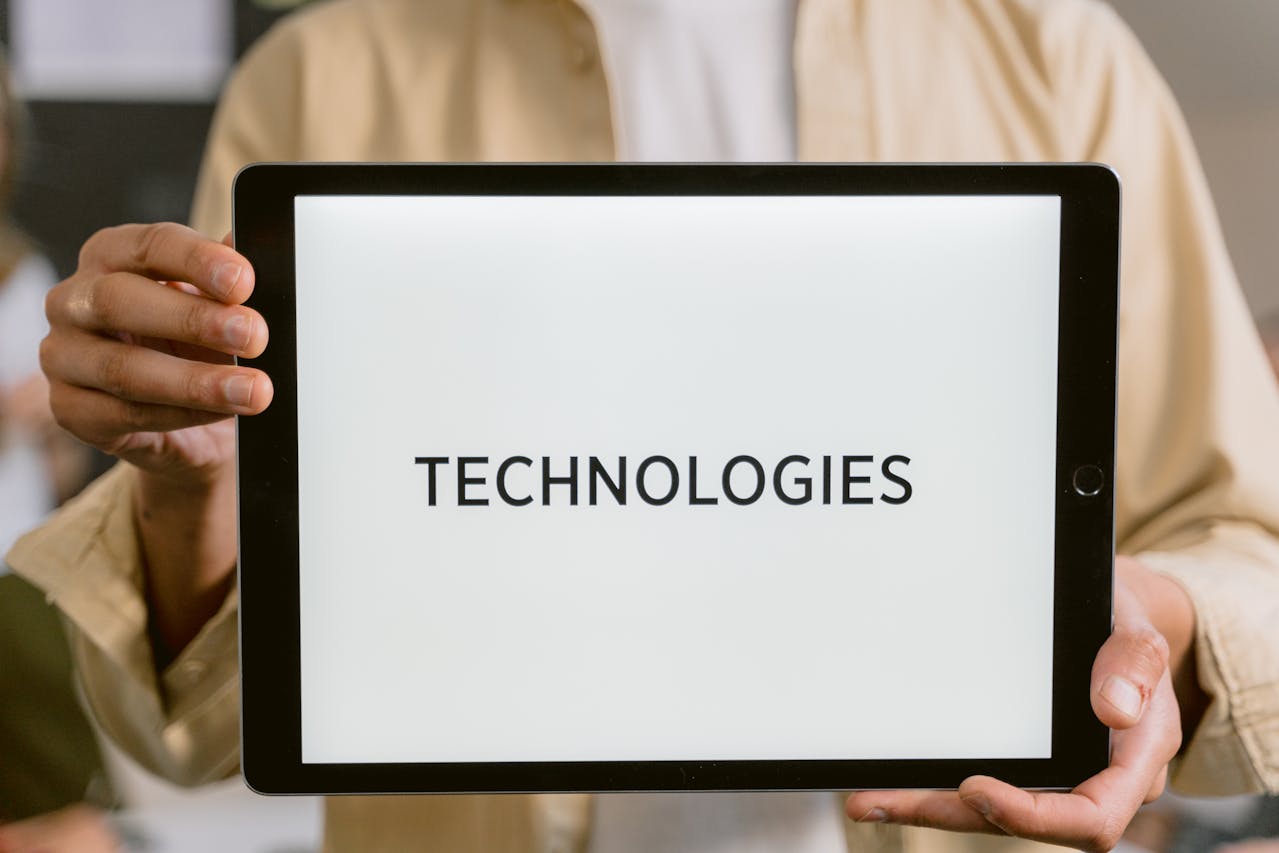How New Technologies Are Changing the Digital World and What the Future Holds for Information Technology

How New Technologies Are Changing the Digital World and What the Future Holds for Information Technology
The field of information technology (IT) is undergoing a period of rapid development that we have never seen before. Emerging technologies, such as cloud computing and artificial intelligence, are not only tools; rather, they are altering the way in which we live, work, and interact with digital systems. It is no longer the case that information technology is restricted to back-end operations; rather, it has become the driving force behind innovation, automation, and better decision-making across all sectors as we go further into the year 2025 and beyond.
In the future, information technology will be characterized by its capacity to combine cutting-edge technologies such as artificial intelligence, quantum computing, and fifth-generation wireless networks into daily life, therefore producing seamless experiences for both consumers and enterprises. In the following paragraphs, we will investigate the ways in which these emergent technologies are transforming the digital world, as well as the implications that this has for the future of work, cybersecurity, and global connection.
1. The combination of machine learning and artificial intelligence In the Driver’s Seat
In today’s world of information technology, Artificial Intelligence (AI) and Machine Learning (ML) are at the center of practically every breakthrough. The use of these technologies is making digital systems smarter and more autonomous. These technologies include chatbots and virtual assistants, as well as analytics driven by artificial intelligence and cybersecurity. For the purpose of predicting consumer behavior, automating repetitive operations, and improving customer experiences, businesses today depend on artificial intelligence.
Artificial intelligence will become much more pervasive in people’s lives in the years to come. Coding assistants that are driven by artificial intelligence, customer service systems that are totally automated, and powerful predictive analytics are all expected to become the norm in a variety of sectors, including healthcare and banking. Furthermore, the way in which businesses construct and distribute digital solutions is already being altered by generative artificial intelligence tools. These tools include those that can write code, design websites, or develop marketing material.
2. The Increasing Popularity of Quantum Computing
Quantum computing is one of the most fascinating developments in the field of information technology. On the other hand, quantum computers make use of qubits, which are capable of being in several states simultaneously, in contrast to regular computers, which make use of binary bits (0s and 1s). Consequently, quantum computers are able to conduct computations at a rate that is millions of times quicker than that of the supercomputers that are now in use.
It is anticipated that quantum computing would revolutionize a variety of industries, including drug discovery, cryptography, financial modeling, and complicated simulations, despite the fact that it is still in its experimental phases. Both a problem and an opportunity are presented by this situation in terms of cybersecurity. It is possible that traditional encryption techniques may become outdated in the future; nevertheless, quantum-safe cryptography is currently being developed to safeguard digital systems for the future.
3. Hyperconnectivity and High-Speed 5G
Already, the introduction of 5G technology is causing a shift in the manner in which we connect to the internet. The ability to fuel technologies such as driverless cars, smart cities, and sophisticated Internet of Things (IoT) ecosystems is made feasible by the availability of ultra-fast speeds, reduced latency, and larger bandwidth.
The information technology infrastructure will become more decentralized with the introduction of 5G and the next 6G networks. This will make it possible to deploy cloud-based apps more quickly, perform remote operations in real time, and improve virtual and augmented reality experiences. In the future, there will be hyperconnectivity, which will allow billions of gadgets, ranging from wearable health monitors to smart home appliances, to interact with one another in a seamless manner.
4. Architecture on the basis of zero trust and cybersecurity
As digital systems get more complicated, the dangers that they are exposed to also increase. Simple hacks have given way to more complex forms of cyberattacks, such as ransomware, phishing schemes, and ransomware powered by artificial intelligence. Zero Trust Architecture (ZTA), which runs on the assumption that no user or device is trustworthy by default, is where the future of information technology security resides. In order to give access, it is necessary to verify each and every connection, regardless of whether it is internal or external.
Furthermore, in the next years, the protection of sensitive data will be dependent on the use of artificial intelligence-based threat detection, biometric identification, blockchain technology for secure transactions, and quantum encryption. No longer will cybersecurity be an afterthought; rather, it will be the cornerstone of each and every information technology system.
5. The Internet of Things (IoT) is Increasing Its Scope of Application
Internet of Things is gradually integrating the digital and physical worlds we live in. For example, linked industrial machinery, wearable gadgets, and smart homes are only the beginning of what’s to come. Over thirty billion Internet of Things devices are expected to be in operation by the year 2030, and they will generate enormous volumes of data every single second.
Edge computing, in which data is processed closer to the source rather than depending only on centralized cloud servers, will be the focus of advancements in the Internet of Things (IoT) in the future. The performance of real-time applications such as driverless cars, industrial automation, and healthcare monitoring is improved as a result of this reduction in latency.
6. Computing in the Cloud and at the Edge Taking the Lead in Information Technology Infrastructure
Moving to the cloud is no longer a passing fad; rather, it is an absolute must. In order to take advantage of cloud-based platforms’ flexibility, scalability, and cost-effectiveness, businesses are shifting away from servers that are located on their own premises. Cloud computing and edge computing are two types of computing that may help businesses increase their efficiency and speed up the processing of data.
In the not too distant future, hybrid and multi-cloud solutions will become the norm, enabling businesses to choose the most advantageous features from a variety of cloud service providers. For the first time ever, businesses will be able to improve their information technology infrastructure with the help of AI-driven cloud management.
7. Experiences that are shaped by virtual and augmented reality tools
The use of virtual reality (VR) and augmented reality (AR) is no longer exclusive to the realm of gaming. In the year 2025, they are revolutionizing the fields of education, healthcare, shopping, and cooperation via the internet. Imagine going to a virtual job interview in a three-dimensional workplace or putting a product through its paces in a virtual shop before making a purchase purchase.
As the metaverse continues to expand, augmented and virtual reality technologies will become more important to the ways in which we interact with one another, shop, and do our jobs. Experts in information technology are now concentrating their efforts on developing digital experiences that are so deep that they blur the border between the real and virtual worlds.
8. The Role of Automation in the Future of Work
The employment market is being reshaped by automation that is fueled by artificial intelligence (AI), robotic process automation (RPA), and smart workflows. The need for high-level technical and creative talents is expected to increase, according to specialists in information technology, despite the fact that computers are increasingly handling routine duties.
Collaboration technologies that are driven by artificial intelligence, digital twins (virtual reproductions of physical systems), and intelligent data analytics will be used by enterprises in the future in order to enhance their operations. When ordinary jobs are entirely automated, human workers will be able to devote more of their attention to issues of strategy, creativity, and problem-solving.
9. Information Technology Eco-Friendly and Sustainable
The future of information technology will place a significant emphasis on sustainability. Companies are making investments in green data centers, energy-efficient hardware, and environmentally friendly software solutions in response to the mounting worries the world is experiencing over climate change.
AI-driven energy management, renewable-powered servers, and carbon-neutral cloud computing are examples of emerging technologies that are making information technology infrastructure both more efficient and more environmentally friendly. Expect information technology businesses to place equal importance on innovation and sustainability by the year 2025.
10. No-Code Platforms and Artificial Intelligence-Powered Development
No-code and low-code platforms, as well as coding assistants driven by artificial intelligence, are also giving rise to a transformation in software development. The usage of these technologies makes it possible for people who are not technically savvy to construct processes, websites, and applications without having to write a single line of code.
As a result of this democratization of software development, innovation will be accelerated, prices will be reduced, and entrepreneurs will be given the ability to bring their ideas to life more quickly than ever before.
What Does the Future Hold for Information Technology?
The future of information technology will be characterized by quickness, intelligence, and connectedness. Emerging technologies such as artificial intelligence (AI), quantum computing, and the internet of things (IoT) are paving the way for a society in which everything is automated and networked. Companies who are willing to embrace these technological breakthroughs will have a huge competitive advantage, while people who possess strong technological abilities will continue to be in great demand.







